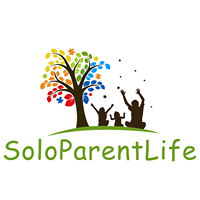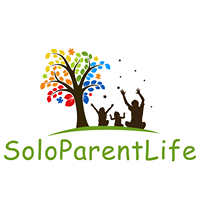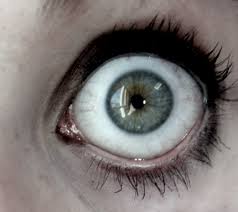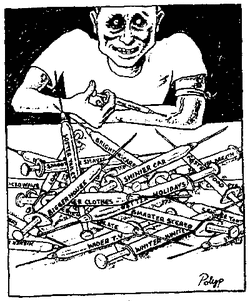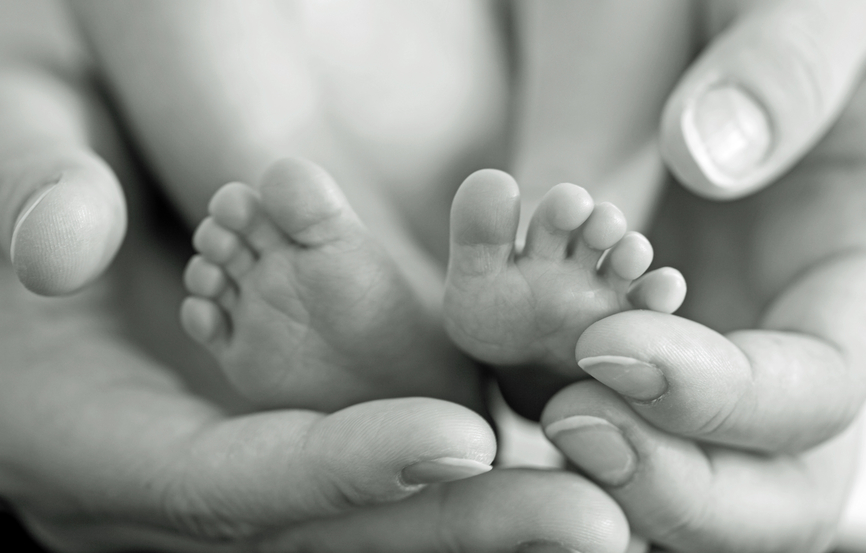One morning, not long ago, I overheard a conversation between the host of NPR's "Morning Edition" and some distinguished law professor from one prestigious university or another—you know the drill.
The two were bantering back and forth about the meaning of the word "truth." Up until now, the word has always been understood to mean any thing or event that actually happened. Apparently, truth's ratings have been sagging; Donald Trump wants to give the word a sorely-needed makeover. In the 2003 movie "Something's Gotta Give," Harry (played by Jack Nicholson) and his love interest, Erica (played by Diane Keaton), are struggling to create a meaningful connection with one another. Harry, a long-time womanizer with questionable integrity, explains that he has never lied to Erica. Instead, he has always told her "some version of the truth." In response, Erica snaps back, "The truth does not have versions!” Indeed, until about a month ago, it did not. If The Administration has its way with us, the definition of "truth" will stretch to include opinions or ideas that, when emphatically stated over and over again, are accepted as fact, regardless of their veracity. If the public buys this new-and-improved rendition of truth, as a psychotherapist, I cannot help but wonder about the impact this will have on our intimate relationships. I am often enlisted to provide individual and couples counseling for those whose lives have been shattered by dishonesty. People lie or keep secrets about all sorts of things: history, fidelity, spending, addictive behavior and, in extreme cases, even their identities. Whether big or small, I have found all lies have one thing in common: they forge distance between ourselves and our intimates. A lie is a carefully built wall that neither we nor others can scale. The basis of meaningful connection is shared reality. If I see a dog and you see a fish, any conversation we have about this animal will be meaningless. A lie renders impossible the shared experience upon which trust and intimacy are predicated. Why, when given a choice between closeness and distance, do some of us choose the latter? I think it happens for several reasons.
Lies are exponential: we must continue to tell them to keep truth hidden. This can get tricky so most skilled liars tell partial truths to avoid slipping up. Partners may get some of the “who, what, where, how, when, and why" of a story but any detail that threatens to topple the house of cards will be withheld. No matter how adept any of us are at deception, it is in only the rarest of cases that the truth remains indefinitely hidden. Truth demands to be told. Lying forfeits our jurisdiction over how and when this happens. We may think we've done a sufficient job in covering our tracks but it is only a matter of time before we forget to minimize the screen before our lover enters the room, log out of a secret email account, or are spotted by a co-worker or neighbor doing something we shouldn't be doing. We avoid the truth to prevent suffering but, in so doing, end up creating far more of it. Instead of grieving only the pain of a difficult truth, the deceived is humiliated over having played the lead role in a story without full access to its script. Additionally, those who have been betrayed suffer tremendous doubt. Doubt of themselves for misplacing their trust and doubt about where the line between fact and fiction existed their relationship. In the aftermath of betrayal, the two most common questions I hear in therapy are “Will I (we) get past this?” and “How long will it take?” We will explore the answers to these questions in Part Two of this series. So stay tuned. In the meantime, has deception played a role in any of your past or present relationships? If so, what did you do about it? Feel free to share your thoughts anonymously in the comments section below. Dr. Jill Gross is a licensed psychologist, therapist, and counselor. She offers grief therapy, divorce support, and other counseling services in the Phinney Greenwood area of Seattle, WA. Has your relationship been torn apart by betrayal? Schedule a free consultation to find out how couples therapy or counseling can put you on the road to recovery!
6 Comments
Last week, on "Solo Parent Life," Dr. Robbin Rockett released Part One of a two-part series on Dating After Divorce. In that segment, Robbin and I discussed the importance of knowing what you want, what you don't want, and knowing when you are ready to start dating. In Part Two, Robbin and I discuss the finer points of online dating. Is your "type" no longer working for you? Want to write a killer profile? Interested in finding out how to distinguish a "yes, please" from a "no, thank you?" Tune in to Part Two of Dating After Divorce to learn more! Dr. Jill Gross is a licensed psychologist, therapist, and counselor. She offers grief therapy, divorce support, and other counseling services in the Phinney Greenwood area of Seattle, WA.
Want to learn more about to have a richer, more satisfying post-divorce dating experience? Schedule a free consultation now! As Associate Producer of "Death: the podcast," I am behind the scenes pre-screening prospective guests, writing copy, and basically doing whatever is needed to keep the gears oiled. Recently, I took a turn in front of the microphone for a great new podcast called "Solo Parent Life." Hosted by psychologist and single parent, Dr. Robbin Rockett (I know--doesn't she have the BEST name ever? I love it!), the podcast provides support for those of us who are courageously traversing the path of the single parenthood. After a bit of post-divorce dating trial-and-error, I developed a system that helped me land a terrific guy (admittedly after kissing a few frogs). So I leapt at the chance to share some single-parent dating tips with Robbin's listeners. There was so much ground to cover, Robbin decided to split the show into two parts! How do you know when the time is right to start dating? What is the first step? What's the best frame of mind to adopt as a post-divorce dater? Find out by clicking the link below. And stay tuned for Part Two, due out next week. Enjoy! Dr. Jill Gross is a licensed psychologist, therapist, and counselor. She offers grief therapy, divorce support, and other counseling services in the Phinney Greenwood area of Seattle, WA. Want to learn how to date better, post-divorce? Schedule a free consultation now!
Grief is a sneaky bugger. Like variegated yarn it weaves its way into our lives, resulting in subtle (sometimes not-so-subtle) changes in hue. While most of us expect to mourn death, divorce, or disease, we are confounded by loss that cannot be touched or researched in any scientific journal: that of innocence.
For me, it all started with Santa. I still remember the moment my older sister and I put the pieces together: one portly man, a magic sleigh loaded with presents, pulled by flying reindeer, shimmying down the flues of houses all over the world in one night? Ya. Right. And, hey, didn’t the handwriting on Santa’s thank-you notes bear a strong resemblance to our father’s? The look on our mother’s face when we confronted her with the case files merely confirmed the gig was up. I thought I would feel proud for solving the Santa mystery. Instead, I was disillusioned by the years of tooth money, chocolate bunnies, and carefully-filled stockings, not purveyed by magical figures from faraway lands, but by the two hands of my very real parents. I was too young to know it then, but this moment was the first pearl in strand of ideals that would eventually break apart as I got older. From birth until about age seven the part of our brain responsible for logic and reason (prefrontal cortex) is undeveloped. From age seven until approximately twenty-five, prefrontal synapses burgeon. As they do, our problem-solving ability advances and the idyllic lenses through which we view world are gradually replaced by realism. What no one ever tells us is just how emotionally difficult this process can be. Life chips away at our ideals until the pain of holding on to them is greater than the pain of letting them go. Here are the most commonly grieved ideals I have encountered in my work as a therapist:
The age at which we recalibrate our assumptions will vary according to our personal circumstances and degree of openness. Though its intensity eventually subsides, grief is often cyclical and ongoing. Life has an uncanny gift for shining light on the places that may always be tender. For instance, the childhood wounds we made peace with in early adulthood can be reawakened when we become parents. This can also happen when our children reach the age(s) we were originally injured. The next time you feel as if there has been a terrible mixup in the cosmic kitchen, ask which of the above ideals you may be struggling to recalibrate. Need help? Try scanning your internal dialogue for "shoulds" (e.g., “My parents should have been more responsive.” or “My relationship should have lasted."). "Should statements" are the expression of an unconscious wish to live more freely. Instead of telling yourself how things should have been or how they should be, remind yourself that everything you experience is divinely chosen for your healing and growth. Gently loosening the grip on idealistic assumptions allows us to make peace with what is. Dr. Jill Gross is a licensed psychologist, therapist, and counselor. She offers grief therapy, divorce support, and other counseling services in the Phinney Greenwood area of Seattle, WA. Struggling with something that didn't turn out quite the way you wanted? Schedule a free consultation to find out how therapy or counseling can help you find peace!
In the checkout line at the grocery store a woman was speaking loudly into her cell phone. "Wish me luck," she bellowed, "Lord knows I need it. I'm broke. And I don't mean financially. I mean emotionally, spiritually broken!"
Instantly, my mind traveled to the slips of paper in the front pocket of my purse. Earlier this year, I attended a party, the purpose of which was to manufacture and spread positivity into world. Each guest was asked to craft personalized poems, memes, and messages of hope, kindness, and encouragement. Our missives were to be distributed throughout the community at random. Unexpected pockets of pleasantry for those who could use it. Upon hearing the shopper's plight, I planned to stealthily slip one of the handmade notes into her grocery bag. Ah...the best laid plans. Either I moved too slowly or she moved too quickly because, when I looked up from the check stand, the stranger was headed for the cart corral. I followed her and tried to put the note in her bag before she could see me. But she busted me--red-handed! Tongue-tied and sweaty-palmed I extended the note in her direction. "Here...I've got something for you." I was shocked by what happened next. The woman who, just moments earlier declared her brokenness to the world (okay, not the world, but at least a dozen other shoppers in the checkout line) recoiled in disgust. It was as if I was handing her a soiled diaper. Or an envelope filled with anthrax. Clearly, the stranger wanted nothing to do the note or its messenger. "Nope. No. NO!" she shouted, with a sweeping motion of her hands, shooing me away like flies off potato salad. "What IS THIS?!" she demanded to know, eyes suspiciously fixed on the anthrax diaper. I told the woman the envelope contained words of encouragement that were written with just this kind of occasion in mind. "Well I don't need it," she protested, "my life is just FINE!" With that, she placed the note on the window ledge of the cart corral and gingerly backed away, lest it spontaneously combust into a toxic cloud of bio-hazardous dust. She must have had a an instant change of heart because she pivoted back and asked, with a heavy dose of side-eye, "Is this some kind of religious thing? Because I am NOT interested in THAT!" "No," I replied, "it's just a little poem I wrote. I thought it might brighten your day. But there is no obligation to accept it." With an air of annoyance, she snatched the note off the sill and escorted her groceries to the car. I"m quite certain the unopened envelope immediately took up residence next to the empty latte cups and wadded grocery lists in the parking lot rubbish bin. I walked away flummoxed. Despite numerous attempts to forget about the incident, I kept ruminating about it. Despite its spectacular awkwardness, the exchange felt oddly meaningful. Perhaps there was something to learn here. After giving it some thought, I realized what I heard in that woman's voice was desperation. Desperation is fear that joins forces with hopelessness, self-doubt, and loneliness. It is an occasional part of any well-lived life. Most of us long to be noticed. To be loved. To be accepted. These longings are most pronounced when we are desperate, yet we are often so ashamed of our vulnerability, we come undone when it is acknowledged by another. We push love away, either by gripping it too tightly (lest it disappear) or by lashing out to throw others off its scent. We cannot be any kinder to anyone than we are to ourselves when we are desperate. The stranger in the grocery store likely responded to me the same way she responds to herself when she is vulnerable--the same way any one of us under the same circumstances might have responded. Desperation can make a powerful argument for urgency: we must make that phone call, take that drink, offer ourselves to that unworthy recipient, or tell that strange lady in the grocery store to bugger off now! Alas, when we are desperate, the best option is to stay put, do nothing, breathe, and let the feeling run its course. Like all moments, desperate moments are designed to pass. It's just hard to remember this when desperate fear wants to take the wheel. When desperation arrives on the scene, shame soon follows. The voice of shame tries to convince us we are weak, pathetic, or unlovable. Shame tells lies; don't believe them. Desperation is not pathetic. It is the cosmic backhoe that exposes us to the rawest, most honest parts of ourselves. There is beauty in this honesty. Even though we may believe we are undeserving of love when we are desperate, this is the time we most need it. Sometimes the love we crave can come from someone else. More often, however, we must reach inward to find it. Your house is one with many rooms. Even when it is barricaded by desperation, the room of self-love still exists somewhere deep inside of you. Trust that it is there. Take a blind leap of faith that you will find. You will! Dr. Jill Gross is a licensed psychologist, therapist, and counselor. She offers grief therapy, divorce support, and other counseling services in the Phinney Greenwood area of Seattle, WA. Feeling desperate? Schedule a free consultation to find out how therapy or counseling can help you!
People often seek therapy to help mitigate fear or discomfort. No wonder. Being on the back end of the life spiral is not much fun. However, did you know that pain and discomfort are precursors to growth? Let's explore this together.
Each of us was born with an instinctive drive to seek pleasure and avoid pain--both real or imagined. As cave dwellers, the latter kept us from getting eaten by predators whilst out foraging for bison and berries. So let's be grateful for that! Times eventually changed and so did our brains. However, the part of the brain that is responsible for logic and reasoning (frontal cortex) is located nowhere near the part where primal fear occurs, (amygdala). Thus, many of us today struggle to accurately interpret fear. Sometimes fear is meant to notify us of imminent danger. However, it is more common to experience fear in the absence of a true threat. Fear in the absence of danger is called "anxiety." Anxiety would have us believe there is a tiger in the grass when, really, there is no tiger. Because fear can be quite convincing, many of us choose to mitigate it with avoidance, even when the feared stimulus is (somewhat) neutral, like dogs, conflict, bridges, public speaking, or peanut butter getting stuck to the roof of your mouth (yes, that really is a phobia). The imagined equation looks like this: fear + avoidance = relief. However, what most of us don't know is that avoidance actually increases the likelihood that we will experience more fear the next time we encounter the feared stimulus. And what coping strategy are we most likely to use to handle this fear? You guessed it: avoidance! So, the real equation looks more like this: fear + avoidance = self-doubt + more fear + future avoidance. This is not how most of us want our lives to add up! I once observed an interaction between a mother and her teenaged son, the latter of whom struggled with social anxiety (i.e., an excessive fear of being judged, scrutinized, or criticized in social situations). The son decided he wanted pizza for dinner and, when it came time to call in the order, the mother automatically assumed she was the best candidate for the job. When I asked why her son couldn't order his own pizza, she was gobsmacked. "He has anxiety!" she exclaimed. As if I was the one with problem for asking. The loving mother could not see how this kind of "protection" deprived her son of the option to know his own strength by challenging his fear. The taproot of all anxiety is the fear of temporary discomfort. For example, if the boy would have phoned in his own order, the worst case scenario was that he would have felt awkward or uncomfortable for a little while. Discomfort, like any other transitory emotional state, is felt and then released. No one has ever died of discomfort. But many have regretting not having fully lived! Avoiding what we fear is a way of whispering"I can't do it!" into our unconscious minds. This is a self-fulfilling prophecy. The more we allow fear to drive our decisions, the smaller our worlds become. The next time you feel gripped by anxiety, try this: 1. Name your fear. Say out loud exactly what you are afraid of. Sometimes we can deflate fear just by hearing it spoken aloud in our own words. 2. Ask yourself: "What might happen if I do ___?" Ask yourself what the consequences would be if you challenged your fear. If the answer is anything that resembles, "I will feel awkward, uncomfortable, look stupid, etc." tell yourself this: "From now on, I choose to live in the light. I am reclaiming strength and joy in my life." 3. Ask yourself: "What might happen if I don't do ___?" What opportunity for growth would you be missing if you chose to avoid this fear? Remember, the temporary relief afforded by avoidance is a prequel to more fear and self-doubt. You deserve better! 4. Go for it! Your confidence is hiding, just beyond your fear of discomfort. Doing what you fear is the only way to access it. Why deprive yourself of feeling capable? (Hint: there is no good answer to this question.) 5. Pay attention to your feelings. As you live by this new creed, pay attention to how you feel. It is okay if things do not turn out perfectly every time. Perfect is the enemy of the good enough. The most important thing is that you tried. So keep trying! Remember that courage is not the absence of fear--it is what happens when we feel afraid and do it anyway. Each step away from fear is a step toward confidence. You are creating the life you deserve by showing yourself that YOU are stronger than fear! Not sure you want to try this alone? Email me to find out how you can kick fear to the curb! Dr. Jill Gross is a licensed psychologist, therapist, and counselor. She offers grief therapy, divorce support, and other counseling services in the Phinney Greenwood area of Seattle, WA. Schedule a free consultation to find out how therapy or counseling can help you get from fearful to fierce!
Like what you see? Enter your email address below to receive exclusive personal growth-related content, post updates, and more!
While perusing Netflix a few nights ago, I stumbled across an indie film entitled, "The Queen of Versailles." Weighing in at 1 hr and 40 minutes, this 2012 award-winning documentary really packed a punch.
The film depicts (then) 70-year-old billionaire David Siegel, the Founder and CEO of a large time share empire, and his 42-year-old-former-Mrs.-Florida-wife, Jackie. Together, with their fleet of children, pets, drivers, housekeepers, and nannies, the couple endeavors to build the country's largest residential dwelling. Modeled after its namesake, the 90,000- square-foot home (pictured below), boasts its own bowling alley, several indoor swimming pools, ten kitchens, multiple bedrooms and bathrooms, and even a 5000-square-foot closet.
the lavish parties, private jets, private schools, etc.--came to a screeching halt. Construction on Versailles ceased and the family's flagship home sailed into foreclosure.
A few years after the film debuted, the economy recovered. Siegel was able to salvage the remnants of both his business and his mansion (Versailles is reportedly due to be completed this year). He could not, however, save his 18-year-old daughter, Victoria, who succumbed to a heroin overdose in her parents' home on June 6, 2015. The film was popular, not only because it offered us a peek into the lives of the very wealthy (about which many are naturally curious), but because it examines why, swathed in abundance, so many of us are compelled to seek more. People tend to assume they should feel happy most or all of the time. So, when we experience normal dark emotions, like boredom, sadness, shame, longing, or loneliness, we believe them to be an indication of our deficiency. Into the void we shovel substances, work, people, money, sex, material objects, etc. hoping they will provide us relief. We may even feel better for a little while. But novelty's "high" eventually wears off and, when it does, we seek to recapture it with bigger, better, and more. The wise part of us knows that seeking validation in external things is a fool's errand. But that doesn't stop us from trying. Many of us would rather chew off our arms than sit, even for a moment, with boredom, sadness, shame, longing, or loneliness. People often consult me because they are plagued by too much of something: depression, food consumption, substance abuse, work, etc. What they are often surprised to find is that overindulgence in one area is a signpost for perceived scarcity in another. For example, depression is not the result of too much sadness, it is what happens when we do not trust ourselves to fully experience sadness (without allowing it to consume our lives). The harder we work to suppress dark emotions, the more prominent they become. Filling the void with external things only reinforces that there is something to escape. We all posses a void, the size and shape of which is contingent upon our life experiences. Seeing the void for what it is--a bout of temporary dark feelings--tips us gently toward the light. If you are currently grappling with the void, here are four things to remember: 1. Beauty: In dark times, it is easy to forget that beauty exists. But it does. Everywhere. Need a reminder? Go outside and find something that occurs in the natural world. Study it closely. Take it in with as many senses as you can. You'll be amazed. 2. Gratitude: Make a daily list of at least three things for which you are grateful. The simpler, the better. It sounds corny but it really helps. Why? Think of Gratitude and Joy as your two favorite aunties who live in a duplex with an adjoining door. When you visit one, it is highly likely you will run into the other. Gratitude reminds us we are capable of joy. 3. Worthiness: Though we may feel least deserving of love in our lowest moments, it is then we most need it. We all possess a groundswell of love inside of us. You may not recognize yours right now, but it's there. You can--you will--access it. It's okay if you don't know how to do this. According to Melody Beatty, "H.O.W." stands for "Honesty, Openness, and the Willingness to try." With these three things on board, you're all set. The rest will figure itself out. 4. Acceptance: Try to accept that you will never find satisfaction in bigger, better, or more because they do not address the source of your hunger. Most of us simply long to know that we are okay. We are always okay, in the absence of external validation, even when we don't feel okay. I am often asked by people how long they will be in pain. Typically, my answer is "as long as." We cannot schedule an end date for our feelings. We can simply set a conscious intention to love ourselves through them. The void may never fully go away. This not an indication of deficiency; it is a byproduct of living. We are all doing our best to manage the void as it comes. Replacing the quest for bigger, better, or more with our own patience and love, over time, helps it diminish. If managing the void on your own is no longer working, it could be time to email me for a free consultation. Life can get pretty tough--you don't have to do it alone!
Dr. Jill Gross is a licensed psychologist, dating coach, and writer. She offers dating consultation and counseling services in Seattle, WA.
Sign up for great monthly personal growth-related content here:
On a sunny Memorial Day weekend in Cincinnati, a three-year-old boy traversed a barricade and tumbled into the watery mote that divides zoo spectators from its magnificent family of silverback gorillas.
What ensured was horrifying. The boy was dragged through the mote, up its wall, and into the gorilla exhibit by Harambe, the 400-lb. alpha male of the family. Harambe, perhaps driven more by protective than aggressive instincts, was shot and killed by zookeepers to prevent further injury of the boy. Thankfully, the boy is fine. The ordeal was heartbreaking. Equally heartbreaking were the subsequent blame and judgment cast upon both the boy's parents, who lost track of their son for what was probably only a minute or two, and the zookeepers, who were forced to make a split-second decision to either spare the life of a 400-lb. gorilla with dubious motives, or save the tiny human whose fate resided in his leathery mitts. Zookeepers chose the latter and everyone, everywhere had something to say about it. Miles away from the epicenter of such events, safe behind the motes of liquid crystal displays and anonymous user names, so many of us become experts at fault-finding and finger-pointing. The boy's parents or the zookeepers should have done this or shouldn't have done that. It's funny how those least qualified to render an opinion are often the first to do so. As any parent can attest, what happened last weekend at the Cincinnati Zoo could have happened anywhere, to anyone, regardless of race, ethnicity, or creed. Parents get distracted, overwhelmed, and, sometimes, we simply lose sight of our children. I know. It happened to me. While walking at a local park a few years ago, I let my (then) nine-year-old son ride his bike on the trail alongside me and my eleven-year-old daughter. As we entered the home stretch of our stroll, I scanned the horizon for the boy who, just moments ago, in flash of blue and green, whizzed past his sister and me. There was no kid. No bike. Only a sea of unrecognizable faces. I called for him, lest he be climbing a nearby tree, but heard nothing. I asked several other walkers if they had seen a kid matching his description. They had not. It was as if my son had simply vanished from the trail. On a busy park Sunday, I was alone, with a child who was not old enough to be left by herself, in search of a missing child who, I assumed, was not capable of finding the car, which we had parked in an unusually faraway location. What's more, because the park path is miles long and circular, it was impossible for me to tell if, by continuing forward on the path to look for him, I would be walking toward or away from my son. Having watched a few too many episodes of "Unsolved Mysteries," my mind immediately started caving in on itself. With dry mouth and a racing heart, I forced my sweaty fingers to dial 9-1-1. It was at precisely this time that some neighbors happened by me on the path and asked if I needed help. Yes. Please. Thank you. The couple quickly set off toward the car to see if, by chance, my son had found his way back to it. In what felt like hours (but was probably only minutes--I was too disoriented to verify this), my phone rang. On the line was a Seattle police officer, kindly requesting that I return to my vehicle immediately. Out of breath, I approached the car, where my son stood up and asked, indignantly, "What took you so long to get here?!?" Balanced on a thin line between wanting to both strike and hug this child, I simply kissed his head and told him I was glad he was safe. Though my brief nightmare ended on a high note, driving away from the park that day, I realized that, just as easily, things could have turned out differently. In fact, we are all a split second away from a complete change in life course. So why do humans assign blame when we could be doling out compassion and grace to those directly impacted by luckless twists of fate? The simple answer: ego protection. We blame when the reality of our own vulnerability threatens to overwhelm us. Despite our best efforts, sometimes, bad things happen to good people and we are helpless to stop it. In the subterranean layers of our consciousness, we know this, yet blame helps us slough off the existential pain associated with how little in life we can actually control. Blame allows us to delude ourselves that we are superior to the leading actors in any unfortunate drama--that we are somehow less susceptible than other people to misfortune. Finally, blame simply lets us be a little more "right." And, boy, does that feel good. Though blame may momentarily protect our fragile egos, it is an hapless barricade to love. Blame doesn't solve anything. It just makes those directly involved feel worse than they already do. By focusing on who *caused* the problem, we are unavailable to the people who need us to be part of the solution. Blame stymies the grace and compassion we all deserve when bad things happen. The event at the Cincinnati Zoo did not happen to bad parents or evil zookeepers. It happened to good, imperfect human beings who did the best they could with the resources available to them at the time. In blame, we are divided. In compassion, we are one. The child who fell into the primate exhibit in Cincinnati is my child. He is yours. He is ours.
Dr. Jill Gross is a licensed psychologist, dating coach, and writer. She offers dating consultation and counseling services in Seattle, WA.
Keep your personal growth wardrobe up to date. Sign up for my monthly newsletter!
Ever since my first child started kindergarten nine years ago, I have dreaded the end of each school year. It starts in mid-April with a pinch of maudlin, a dash of preoccupation with the future, and, much to my children's chagrin, a rampant compulsion to take a ridiculous amount of pictures. The whole process ends in June with full-on weeping at inopportune moments and, of course, more pictures.
This time of year is a sentimental stew of sadness, hope, trepidation, and excitement. Not to mention exhaustion. Every year I know it's coming. Every year it catches me off-guard. Though the early morning awakenings, hurried breakfasts, haphazardly assembled lunches, and mountains of homework take their toll on our sanity, they are also indicators that, each day for seven hours, my children have somewhere to be and something to do (that I did not have to plan for them). I also know that, at 3:00 PM, they will saunter through the door in search of a sympathetic ear in which to pour the news of the day. And snacks. I secretly take comfort in the routine of the school year because, on some level, it sweeps from my consciousness the awareness that time is passing and everything is temporary--even children. Though I knew this from the very beginning, intellectual knowing and experiential knowing are entirely different things. The latter always takes my breath away. Here are four things you may be noticing this time of year: 1. It goes fast. Prior to becoming a parent, I thought this was just mindless cocktail drivel. Once I had children, Monday became Friday. Friday became Christmas. Christmas became Spring Break. Spring Break became Summer. Like cartoon calendar pages, the weeks and months continue to fall away into the wind, one right after the other, faster and faster, until, one day, your baby appears before you in a cap and gown. It is as if we are all aging in dog years. The little boys and girls with whom my daughter went to kindergarten, just last week, must have slipped into some kind of hormonal time machine. The ones I don't see very often, with their deep voices, towering heights, and pimples, are no longer recognizable. This must be why, when I do see them, like a good little old person, I am compelled to blather on about how much they've grown. Because teenagers really do love that. Except they don't. But I still do it anyway. Impulse control is the first thing to go, apparently. 2. Social media makes you feel old. News feeds, once peppered with birth announcements and photos of sweet, sudsy bathtub babies have been overtaken by graduation announcements, prom selfies, and college acceptance letters. Wait a second. Didn't we just wean those babies, like, yesterday? 3. You may feel crazy (but you are not crazy). Watching children grow stirs so many mixed emotions. With each developmental milestone, we must let go of what is no longer needed so that we may encounter what is ahead. Yet there is an inexplicable desire to hold tightly with one hand what we are attempting to release with the other. It is normal and sometimes necessary to experience a mixed bag of feelings as we loosen our grip. This does not make us crazy; it makes us human. 4. Guilt and regret come with the territory. You may be beating yourself up for the soccer game(s) missed, the field trips you didn't chaperone, the Halloween costumes you didn't sew. Guilt comes from a sense of wrongdoing and regret is our mind's way of trying to convince us we knew better when we really did not. Fortunately, our relationships with our children consist of so much more than the incidents about which we feel guilty or regretful which, I assure you, are probably not really all that bad. We all did and are doing our best. And this is enough. Afford yourself the same grace you would afford others. As parents, we are meant to put ourselves out of a job, yet nothing prepares us for the bittersweetness of witnessing a job well done. As this school year draws to a close, remember that your emotions are merely a sign that something important is happening. Take a moment to grieve for what is lost, lean into what is coming, and, perhaps most importantly, take lots of pictures. Dr. Jill Gross is a licensed psychologist, dating coach, and writer. She offers dating consultation and counseling services in Seattle, WA.
For blog post updates and exclusive personal growth-related content, sign up for my monthly newsletter!
A friend and I were recently chatting about our upcoming Mother's Day plans. The conversation started simply enough but, by its end, we were both a bit misty. My friend lost her beloved mother to cancer several years ago, so Mother's Day usually ends up feeling more like a cosmic hip check than a reason to celebrate. The relationship between my mother and me is somewhat complicated, so finding an appropriate sentiment for the day is a bit challenging. I suspect how each of us feels about Mother's Day is as unique as the bond we each share (or shared) with our mothers. Here are four common reasons why, for some, Mother's Day can be difficult: 1. Our mothers are deceased. For those whose mothers have left this world, the week preceding Mother's Day is riddled with dread. When the day arrives, it is to be tolerated, not celebrated. Each social media homage we witness feels like a pinprick to our hearts. We experience a visceral yearning to bring Mom back, to smell her, to hear her voice again, to feel her loving embrace. If the relationship was troubled before she died, there is also regret for what was done and for what cannot be undone. The day is inextricably linked to loss. 2. Our mothers are absent. Few words can describe the grief associated with mourning a parent who is alive but, due to disease (e.g., Alzheimer's), mental illness, addiction, or abuse, is unavailable. Even when emotional cut-off is in our best interest, things never feel quite resolved and Mother's Day stirs the sediment of unfinished business. 3. Our mothers cannot sustain emotional intimacy. Year after year, we emerge empty-handed from the greeting card isle. Clearly the Hallmark copywriters did not know our mothers. The relationship with Mom is neither good nor bad; it is just not there. Thus, Mother's Day wages an internal battle between what we wish we could feel and what we genuinely feel for our mothers. 4. Our mothers are hard to please. A young man's mother gifted him two ties. When he arrived on Mother's Day wearing one of them, his mother exclaimed, "What...you didn't like the other one?!?" For those of us with high maintenance moms, Mother's Day signifies a futile quest to please the un-pleasable. If you are struggling this Mother's Day, here are some suggestions to help you survive the day:
Remember that many of us do not have ideal relationships with our mothers, Because you are the only one who knows how you feel about your mother, you are most qualified to decide how or if you choose to celebrate the day. Act with loving authenticity and the rest will sort itself out. Got any tips for surviving Mother's Day? Share them in the comments section below! Dr. Jill Gross is a licensed psychologist, therapist, and counselor. She offers grief therapy, divorce support, and other counseling services in the Phinney Greenwood area of Seattle, WA. If mom issues are a source of pain or stress in your life, schedule a free consultation to see how therapy or counseling can help! |
AuthorDr. Jill Gross is a licensed psychologist, specializing in grief and divorce. Her coaching and therapy practice is located in the Phinney - Greenwood area of North Seattle in Washington. Archives
May 2021
Categories
All
|
HoursM-TH: 8:30 AM - 2:00 PM.
By Appointment Only |
Telephone & Email |
Address503 N. 50th Street
Seattle, WA 98103 |
*Header Photographs courtesy of Josh Martin


